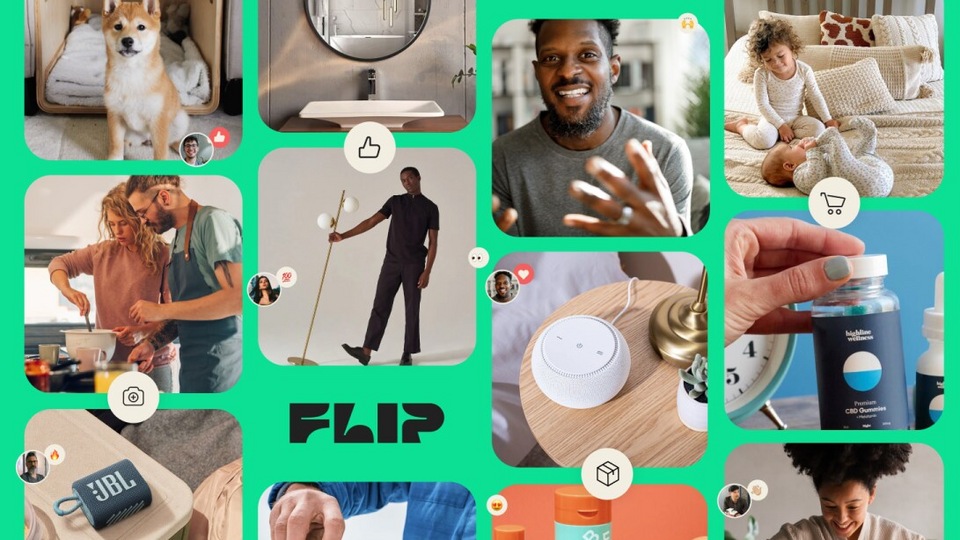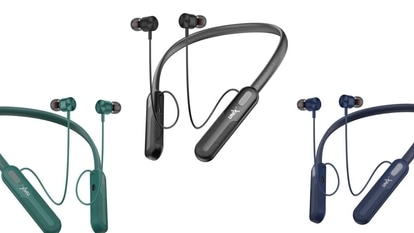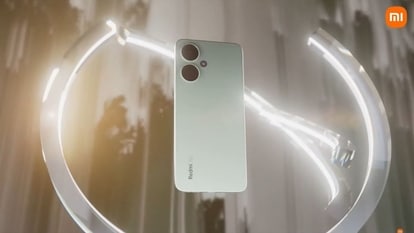Social commerce: Amazon and TikTok leave opening in next e-commerce boom
Flip, a 37-year-old Iraqi refugee’s app, seeks to take advantage of Amazon and TikTok shortcomings when it comes to social shopping.


I'm not totally yet sold on the idea of “social commerce.” The concept, already big in Asia, takes what was previously the role of the grinning influencer class and scales it out to just about everyone. Buy a product, make a video convincing your friends to buy it, make money, repeat. Icky, I think. The future, analysts say, is a $100 billion market by 2025.
In the US, capturing this opportunity is said to be a battle between two existing giants, in which each player has what the other wants. Amazon.com Inc. has shopping but no compelling social platform. ByteDance Ltd.'s TikTok has that addictive social secret sauce but has made only limited inroads into shopping. Both are hard at work trying to solve their shortcomings.
But a potential new player has emerged in this world: Flip. A scrappier upstart, co-founded by 37-year-old Iraqi refugee Noor Agha, Flip has so far received little mainstream attention but in certain circles is creating a buzz unlike any app I've encountered for a while. By not having an existing business to protect, the Flip app is trying to fix a few e-commerce frustrations. It may also be an interesting test case: At a time of scrutiny over the power of big tech platforms, can a newcomer with new ideas actually compete against deep-pocketed incumbents?
Flip works much like TikTok. The user sees a vertical video and browses through by swiping up from one clip to the next. All of the posts are about products that can be bought directly through an “add to cart” button on the video. A counter in the top right corner displays a dollar amount that increases by a few cents with each video watched — the amount can be applied as a discount.
Traction for Flip comes thanks to a recent aggressive viral referral program, the specifics of which are still being held as a closely guarded secret by Agha, whom I reached recently for a chat. “This is a viral engine that will beat every viral engine in history,” he claimed but refused to elaborate. He said he's worried some other company might steal it. From the outside, it seems to be some combination of consensual phone address book harvesting and heavy discounting for both users and the people they persuade to join. Some have said it resembles multi-level marketing.
With the exuberance of a man who hasn't yet done much press, Agha said his viral plan has made revenue increase “50x” over the past month — but from what, and to what, he won't say. That said, independent data from SensorTower does indeed suggest a surge: The research firm says the Flip app has been downloaded 3.6 million times globally, with a spike in October, coinciding with the viral push and the company expanding beyond the beauty category. Data.ai, another analytics group, said that during October Flip was the second-fastest-growing shopping app on both iOS and Android.
Flip remains a minnow compared with Amazon and TikTok. But Agha's app might find a crack of opportunity by playing off the inherent weaknesses of those bigger competitors. Amazon's user experience, as I wrote recently, has deteriorated, having spent the last few years leaning hard into expanding its selection with foreign sellers and serving up a slop of untrustworthy sponsored listings. TikTok's Chinese ownership, meanwhile, is a persistent cloud and, on a more practical level, the app has a challenge in injecting shopping functions into a platform known for its dancing and comedy. Gen Z consumers, having grown up in the influencer era, are savvy enough to recognize inauthentic endorsements when they see them.
Things are engineered a little differently on Flip. “I will say we invented nothing,” Agha said. “We just put the best pieces that people want together.” Unlike Amazon's free-for-all of third-party sellers, Flip allows only verified brands to sell directly. Agha says around 1,000 are on board, but he expects that number to be at around 7,000 by the end of this year. Only brands that ship from within the US are eligible. Importantly, unlike the lucrative “brand partnerships” that fund the influencer industry, brands are strictly prohibited from contacting Flip users directly to try to get them to review their items. Endorsements must come for products that users have bought themselves, and the app includes a mechanism to report brands that cross the line — around “four or five” have been banned from the platform so far, Agha said, but again he declined to elaborate.
When users make a sale, they receive a variable commission depending on the product. But users also receive payments from engagement — making it just as lucrative, in theory, to post a negative review as a positive one. On average, Agha says, 70 cents in every dollar paid out to users was related to engagement, not sales. Still, it's quite clear the platform is full of overwhelmingly positive reviews. When a head massager, spatula and tablecloth are all described as “life changing,” the phrase starts to lose whatever meaning it had left. And while the app has broad aspirations — categories today include groceries and pets — there is a heavy bias toward items that are particularly suited to this attention-span-challenged format.
This gets to the heart of my misgivings about social commerce in general. I get the sense users are buying items not because they necessarily wanted or needed them but because they knew they'd be quick and easy to sell on their recommendations. That's great for low-margin knickknacks but perhaps not optimal for potentially more lucrative categories.
Another challenge will be in logistics. Brands mostly handle shipping themselves, though Flip has (so far) two of its own warehouses to more quickly send out the most popular items. For this column, and because I like pasta, I placed an order on Flip for a set of four pasta bowls. It took eight days to arrive. Not a lifetime, but not Amazon Prime — which is ultimately what Flip is up against. Agha insists deliveries will become quicker.
The question is how much venture capital will be available to throw at the challenge. Flip has mere pocket change — $94.7 million raised at a valuation of $500 million, according to Pitchbook. Agha said he is raising a much larger round, one which he said would come at a much higher valuation — something I don't doubt, given the virality. But as The Information noted, potential investors might worry Flip is destined to go the way of the rapid delivery apps that swiftly lost customers once the generous discounts dried up.
That concerns brands, too. I reached Chris Meade, co-founder of a small sports equipment company, Crossnet. One of its newer products, an “elite” pickle ball paddle that costs $59.99, has been a hit on Flip — so much so that “we're taking our paddles that were in stock on Amazon and shipping them back to our warehouse for our Flip customers.” Meade said the cost of doing business on Flip, after factoring in Amazon's commission, logistics fees and storage, was more favorable. Still, he's wary about siphoning off too much stock just yet: “I'd be very curious to see what percentage of customers were paying with their own money.”
In years gone by, I'd say Flip was ripe for acquisition. But such is the current scrutiny of big tech deals, it seems likelier that the app will need to go it alone. A tough ask, especially when you consider the caliber of the competition. And besides, we don't really yet know whether Western consumers will even take to having their friends giving them the hard sell.
Dave Lee is Bloomberg Opinion's US technology columnist. He was previously a correspondent for the Financial Times and BBC News.
Catch all the Latest Tech News, Mobile News, Laptop News, Gaming news, Wearables News , How To News, also keep up with us on Whatsapp channel,Twitter, Facebook, Google News, and Instagram. For our latest videos, subscribe to our YouTube channel.


























